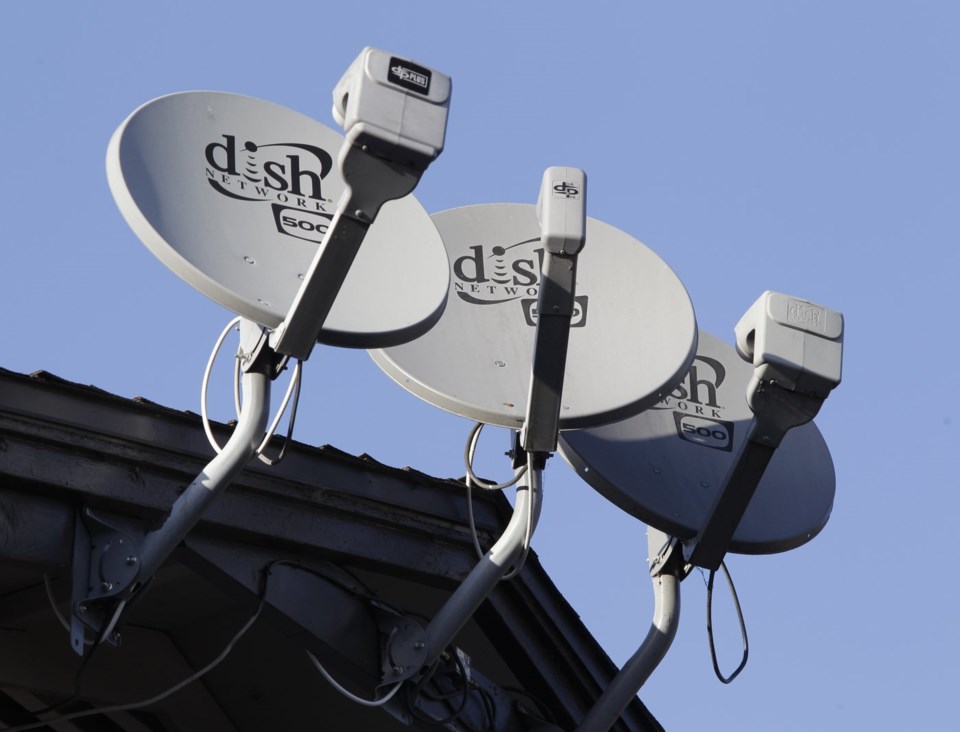Business
DirecTV Agrees To Buy Dish For $1

DirecTV announced Monday that it will acquire rival Dish Network, capping decades of on-and-off talks about the satellite firms joining.
The firms have struggled to keep subscribers in the streaming era. As platforms such as Netflix, Hulu, and Amazon’s Prime Video gained traction, drawing millions of subscribers away from pay TV with lower prices and on-demand content, DirecTV and Dish have struggled to justify rising subscription costs, exacerbating already dramatic cord-cutting.
DirecTV Agrees To Buy Dish For $1
According to the businesses, the “combination of DirecTV and Dish will benefit US video consumers by creating a more robust competitive force in a video industry dominated by streaming services owned by large tech companies and programmers.”
Under the terms of the agreement, DirecTV will pay only $1 to Dish’s owner, EchoStar, in exchange for taking on Dish’s billions of dollars in debt.
Meanwhile, TPG, a private equity group, will acquire AT&T’s remaining 70% ownership in DirecTV. A DirecTV representative told CNN that the move comes nine years after AT&T bought the company in 2015, only to sell a 30% stake to TPG in 2021.
The transaction is still contingent on Dish bondholders agreeing to net debt of less than $1.56 billion, which a DirecTV representative stated the firm will seek to secure in the coming weeks. Bondholders can accept a lesser percentage, take a slightly greater percentage today, or wait it out, risking Dish’s bankruptcy. Dish announced an exchange offering in a news release on Monday.
Dish currently has a $2 billion debt maturing on November 23. To secure money through a shared revenue stream, TPG and DirecTV will offer Dish with a $10 billion loan, which will mature on November 24.
A DirecTV representative told CNN that the agreement gives DirecTV and Dish greater scale. From an investment standpoint, the united entity provides a more consistent revenue stream to invest back into products and services, which is beneficial for programmers such as Disney. It will also enable the new organisation, as a video company, to better collaborate with programmers to create slimmer packages and bundles.
The newly merged DirecTV-Dish corporation will continue to support the Dish brand for the foreseeable future, according to a DirecTV representative. DirecTV has no intentions to replace the existing Dish or Sling TV branding, so current Dish customers do not need to worry about being compelled to switch to DirecTV.
If they unite, the new service will have approximately 20 million members, with DirecTV accounting for more than 11 million of those. However, this figure pales in comparison to DirecTV’s highest TV subscriber count of 20.3 million in 2015, when AT&T acquired a majority share in the company.
Hughes Electronics founded DirecTV in 1994. AT&T acquired the company in 2015 and sold a portion of it to private equity firm TPG in 2021.
Dish Network is a subsidiary of EchoStar Corporation (SATS), which also owns Sling TV and the wireless spectrum utilized for cell phone services. EchoStar shares fell more than 10% in morning trading.
DirecTV Agrees To Buy Dish For $1
A long time coming.
Reports and rumors about a merger have circulated for years. Bloomberg reported in 2014 that former Dish chairman Charlie Ergen contacted former DirecTV CEO Mike White.
However, the US government had previously banned the companies’ proposed $19 billion merger in 2002 on competitive concerns. Echostar had to pay a $600 million breakup fee to Hughes, which was then owned by General Motors.
The partnership announced Monday allows DirecTV to curb rising costs while also allowing EchoStar to handle its debt problem. The agreement also enhances the duo’s position in the business, allowing them to compete more effectively with pay TV rivals and streaming services.
Antitrust regulators’ concerns about satellite TV mergers stem from a time when such businesses were the only carriers available to viewers in suburban and rural areas, which were less densely populated and were not served by cable networks due to expensive infrastructure costs.
However, since broadband firms have increasingly given distant viewers with a variety of solutions, the competitive consequences of such mergers have diminished.
SOURCE | AP

































